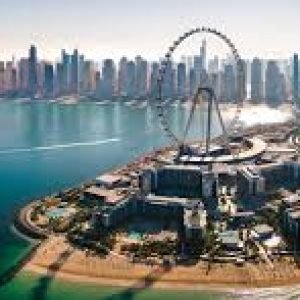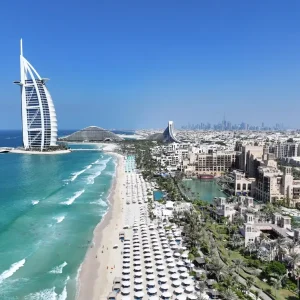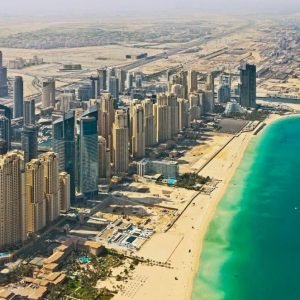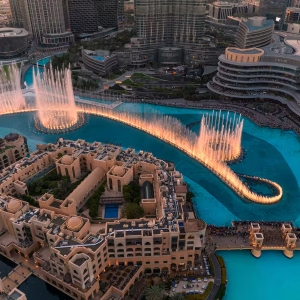When Dubai Gained Its Independence: The Story Behind UAE’s Formation
Many often wonder about Dubai’s “independence day” and how the emirate came to be part of the united nation we know today as the United Arab Emirates (UAE). Rather than gaining traditional independence, Dubai played a crucial role in forming a unified federation with neighboring emirates, marking a historic milestone in the Arabian Peninsula. Here, we explore the journey of Dubai and the UAE’s formation, a story marked by unity, leadership, and visionary foresight.
Pre-Federation Era: A Landscape of Independent Emirates
Before the UAE came into existence, Dubai and the other emirates along the Persian Gulf coast were known as the Trucial States, territories under British protection since the 19th century. Under a series of treaties with Britain, these emirates were collectively under British oversight for foreign affairs and protection in exchange for British military support. This arrangement provided the emirates some security but limited their sovereignty in international matters.

Dubai, under the leadership of Sheikh Rashid bin Saeed Al Maktoum, was an ambitious and forward-thinking state within the Trucial States. Even then, Dubai showed signs of becoming a regional hub for trade and commerce. However, it was clear to Sheikh Rashid and other leaders that true progress and protection required unity and a departure from British influence.
The Move Toward Federation and the Visionary Leaders
In the late 1960s, Britain announced its plans to withdraw from the Trucial States by the end of 1971, prompting a call for the emirates to consider their future. Sheikh Zayed bin Sultan Al Nahyan, the ruler of Abu Dhabi, joined forces with Sheikh Rashid of Dubai to propose the formation of a federation. Their goal was to bring together the seven emirates into one nation, securing independence while fostering economic growth and mutual protection.

The vision of Sheikh Zayed and Sheikh Rashid became the cornerstone for unification. They initiated discussions with other emirates, emphasizing the shared cultural and economic benefits of unity. This movement highlighted the pragmatic, future-focused mindset of the UAE’s founding leaders, who believed that a united federation would serve as a powerful foundation for sustainable growth and stability.
December 2, 1971: The Birth of the United Arab Emirates
After negotiations, six of the seven emirates agreed to unify, officially forming the United Arab Emirates on December 2, 1971. Dubai, Abu Dhabi, Sharjah, Ajman, Fujairah, and Umm Al Quwain were the founding members, with Ras Al Khaimah joining shortly after in 1972. This day is celebrated annually as UAE National Day, marking the birth of a new nation rather than the traditional “independence day” many countries commemorate.
Dubai’s participation in this union, guided by Sheikh Rashid’s leadership, demonstrated its commitment to a shared future and prosperity. By becoming part of the UAE, Dubai gained greater control over its internal affairs while also securing international recognition and access to shared resources and infrastructure initiatives that would fuel its growth.
Dubai’s Role in the UAE’s Rise
Following the federation’s formation, Dubai continued to lead in trade, tourism, and finance, contributing substantially to the UAE’s overall growth. With a spirit of innovation and openness, Dubai rapidly evolved into a global hub, embodying the UAE’s vision of progress and modernity. The city’s thriving economy, iconic landmarks, and strategic position have made it one of the most visited destinations worldwide.
Today, Dubai’s prosperity reflects not only its own achievements but also the success of the UAE’s unified governance model. The commitment to collaboration among the emirates has allowed the UAE to build a strong, resilient economy, with Dubai at its forefront.
The Legacy of Unity and Modern Independence
Though Dubai does not celebrate a specific independence day, December 2, UAE National Day, holds immense significance, symbolizing the emirates’ collective independence and the end of British oversight. For Dubai and the UAE, this day is not just a celebration of the past but also a reminder of the strength in unity and shared vision that continue to guide the nation’s future.
As the UAE marks over 50 years since its formation, Dubai stands as a testament to the visionary leadership that prioritized unity and cooperation over isolation. This legacy has paved the way for Dubai and the UAE to emerge as a thriving global powerhouse, making National Day a cherished occasion of both pride and inspiration for Emiratis and residents alike.
Click here to check UAE STORIES website .
Do follow UAE STORIES instagram .













